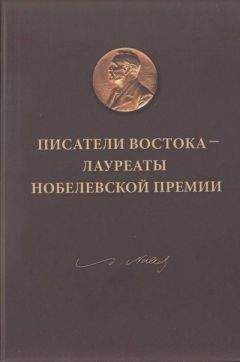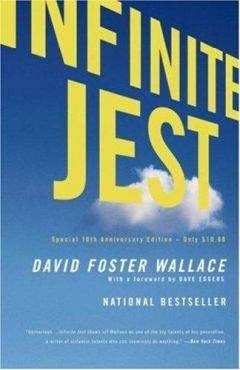Илья Франк - Английский язык с Э. Хемингуэем. Снега Килиманджар

Помощь проекту
Английский язык с Э. Хемингуэем. Снега Килиманджар читать книгу онлайн
equip [I'kwIp], attitude ['xtItjHd], country ['kAntrI]
You kept from thinking and it was all marvellous. You were equipped with good insides so that you did not go to pieces that way, the way most of them had, and you made an attitude that you cared nothing for the work you used to do, now that you could no longer do it. But, in yourself, you said that you would write about these people; about the very rich; that you were really not of them but a spy in their country; that you would leave it and write of it and for once it would be written by some one who knew what he was writing of. But he would never do it, because each day of not writing, of comfort, of being that which he despised, dulled his ability and softened his will to work so that, finally, he did no work at all.
The people he knew now were all much more comfortable (люди, с которыми он теперь знался, чувствовали себя гораздо спокойнее) when he did not work (когда он не работал). Africa was where he had been happiest in the good time of his life (Африка была /тем местом/, где он когда-то провел лучшее время своей жизни: «был счастливее всего в хорошее время своей жизни»), so he had come out here to start again (и вот он приехал сюда, чтобы начать /все/ сызнова). They had made this safari with the minimum of comfort (они совершали эту поездку с минимумом комфорта; safari — сафари, охотничья экспедиция /обычно в Вост. Африке/). There was no hardship (больших трудностей не было; hard — жесткий, твердый; трудный, тяжелый; hardship — трудности; неприятности); but there was no luxury (но роскоши тоже не было) and he had thought he could get back into training that way (и он думал, что так/благодаря этому он опять войдет в форму; to get back — получить назад; вернуться; training — обучение; тренировка; /спортивная/ форма; /профессиональная/ выучка). That in some way he could work the fat off his soul (что он как-нибудь сумеет согнать жир с души) the way a fighter went into the mountains to work and train (как боксер, /который/ уезжает в горы, работает и тренируется; to fight — драться, сражаться; fighter — воин; боец; боксер) in order to burn it out of his body (чтобы согнать его = жир с тела; to burn out — выжигать, сжигать).
happiest ['hxpIIst], luxury ['lAkSqrI], soul [sqVl]
The people he knew now were all much more comfortable when he did not work. Africa was where he had been happiest in the good time of his life, so he had come out here to start again. They had made this safari with the minimum of comfort. There was no hardship; but there was no luxury and he had thought he could get back into training that way. That in some way he could work the fat off his soul the way a fighter went into the mountains to work and train in order to burn it out of his body.
She had liked it (тогда ей это понравилось). She said she loved it (она сказала, что любит это = что ей это понравилось). She loved anything that was exciting (ей нравилось все, что волнует), that involved a change of scene (что влечет за собой перемену обстановки; to involve — вовлекать, втягивать; подразумевать, предполагать; влечь за собой, вызывать), where there were new people (/места/, где есть новые люди) and where things were pleasant (и приятные развлечения: «где вещи/дела приятны»). And he had felt the illusion of returning strength of will to work (и ему уже стало казаться, что желание работать снова крепнет в нем: «он испытывал иллюзию возвращающейся силы стремления/желания работать»). Now if this was how it ended (теперь, если это конец: «если это было /тем/, как /все/ это заканчивается»), and he knew it was (а он знал, что это конец), he must not turn like some snake biting itself (ему не следует становится похожим на змею, кусающую себя саму) because its back was broken (потому что ей перешибли хребет: «ее хребет был сломан»; to break). It wasn't this woman's fault (эта женщина ни в чем не виновата: «это не вина этой женщины»). If it had not been she it would have been another (не будь ее, была бы другая). If he lived by a lie (если он жил, полагаясь на ложь; to live by smth. — жить на /какие-либо средства/, зарабатывать на жизнь /чем-либо/, устраиваться в жизни /с помощью чего-либо/) he should try to die by it (надо постараться и умереть с ней). He heard a shot beyond the hill (он услышал звук выстрела за холмом).
excite [Ik'saIt], scene [sJn], strength [streNT]
She had liked it. She said she loved it. She loved anything that was exciting, that involved a change of scene, where there were new people and where things were pleasant. And he had felt the illusion of returning strength of will to work. Now if this was how it ended, and he knew it was, he must not turn like some snake biting itself because its back was broken. It wasn't this woman's fault. If it had not been she it would have been another. If he lived by a lie he should try to die by it. He heard a shot beyond the hill.
She shot very well (она стреляла очень хорошо; to shoot), this good, this rich bitch (эта добрая, эта богатая сука), this kindly care-taker (эта милая/ласковая опекунша; to take care — беречь, заботиться; ухаживать) and destroyer of his talent (и губительница его таланта). Nonsense (чепуха: «бессмыслица»). He had destroyed his talent himself (он сам разрушил/погубил свой талант). Why should he blame this woman because she kept him well (зачем: «почему он должен» винить эту женщину за то, что она обставила его жизнь удобствами: «держала его в достатке»; to keep)? He had destroyed his talent by not using it (он загубил свой талант, не давая ему применения: «не используя его»), by betrayals of himself and what he believed in (/загубил/ изменой самому себе и /тому/, во что он верил), by drinking so much that he blunted the edge of his perceptions (/загубил/ пьянством, притупившим остроту его восприятия: «тем, что пил так много, что затупил острие своего восприятия»), by laziness, by sloth, and by snobbery (ленью, праздностью и снобизмом), by pride and by prejudice (гордостью и предубеждением), by hook and by crook (всем, чем только можно/всеми правдами и неправдами: «крючком и крюком»). What was this (что это такое)? A catalogue of old books (перечень старых книг)? What was his talent anyway (что это вообще такое — его талант)? It was a talent all right (талант-то был настоящий: «это был талант вполне») but instead of using it, he had traded on it (но вместо того чтобы применять его, он торговал им). It was never what he had done (никогда не было чего-то сделанного: «/того/, что он сделал»), but always what he could do (но всегда то, что он мог бы сделать). And he had chosen to make his living with something else instead of a pen or a pencil (и он предпочел добывать средства к жизни не пером, а другими способами: «чем-нибудь другим, вместо пера/ручки или карандаша»; to choose — выбирать; отдавать предпочтение чему-либо; предпочитать).
betrayal [bI'treIql], sloth [slqVT], prejudice ['preGVdIs]
She shot very well this good, this rich bitch, this kindly care-taker and destroyer of his talent. Nonsense. He had destroyed his talent himself. Why should he blame this woman because she kept him well? He had destroyed his talent by not using it, by betrayals of himself and what he believed in, by drinking so much that he blunted the edge of his perceptions, by laziness, by sloth, and by snobbery, by pride and by prejudice, by hook and by crook. What was this? A catalogue of old books? What was his talent anyway? It was a talent all right but instead of using it, he had traded on it. It was never what he had done, but always what he could do. And he had chosen to make his living with something else instead of a pen or a pencil.
It was strange, too, wasn't it (и ведь странно = это неспроста, — правда?), that when he fell in love with another woman (что, когда он влюблялся в другую = новую женщину; to fall in love), that woman should always have more money than the last one (у этой женщины всегда было: «/непременно/ должно было быть» больше денег, чем у предыдущей: «последней»)? But when he no longer was in love (но когда он уже не был влюблен), when he was only lying (когда он только лгал), as to this woman, now (как теперь /вот/ этой женщине), who had the most money of all (у которой денег было больше всего), who had all the money there was (у которой их было без счета: «которая имела все деньги, какие /только/ есть»), who had had a husband and children (у которой /когда-то/ были муж и дети), who had taken lovers (которая /и раньше/ заводила: «брала» любовников) and been dissatisfied with them (и разочаровывалась в них; dissatisfied — недовольный, раздосадованный; to satisfy — удовлетворять; радовать), and who loved him dearly (и которая нежно любила его) as a writer, as a man, as a companion (как писателя, как мужчину, как товарища) and as a proud possession (и как драгоценную собственность; proud — гордый; вызывающий чувство гордости); it was strange (было странно = не странно ли) that when he did not love her at all (что, когда он ее /уже/ совсем не любил) and was lying (и /только/ лгал), that he should be able to give her more for her money (он мог давать ей больше за ее деньги) when he had really loved (чем когда действительно любил).
dissatisfied [dIs'sxtIsfaId], companion [kqm'pxnIqn], possession [pq'zeS(q)n]
It was strange, too, wasn't it, that when he fell in love with another woman, that woman should always have more money than the last one? But when he no longer was in love, when he was only lying, as to this woman, now, who had the most money of all, who had all the money there was, who had had a husband and children, who had taken lovers and been dissatisfied with them, and who loved him dearly as a writer, as a man, as a companion and as a proud possession; it was strange that when he did not love her at all and was lying, that he should be able to give her more for her money when he had really loved.
We must all be cut out for what we do, he thought (все мы, должно быть, созданы для своих дел, — подумал он; to cut out — вырезать; выкроить; to be cut out for smth. — быть /словно/ созданным для чего-либо). However you make your living (то, как ты зарабатываешь себе на жизнь) is where your talent lies (это и есть твой талант: «/это то/, где лежит = в чем заключается твой талант»). He had sold vitality, in one form or another, all his life (он всю жизнь, в той или иной форме, продавал свои силы; vitality — жизненность; живость; энергия; to sell) and when your affections are not too involved (а когда твои чувства не затронуты: «не слишком вовлечены») you give much better value for the money (/то/ за /полученные/ деньги даешь товар лучшего качества; value — ценность; good value for money — то, что стоит свою цену; предмет, стоящий уплаченных за него денег). He had found that out (он убедился в этом; to find — найти, обнаружить; to find out — разузнать, выяснить; понять) but he would never write that, now, either (но и об этом он теперь /уже/ никогда не напишет). No, he would not write that (да, не напишет), although it was well worth writing (а написать стоило бы: «хотя это было вполне достойно написания»).
Now she came in sight (вот она появилась в поле зрения), walking across the open toward the camp (идет по долине: «через открытое пространство» к палаткам). She was wearing jodphurs (на ней джодпуры[13]; to wear — быть одетым /во что-либо/; носить /одежду/) and carrying her rifle (/в руках она/ держит ружье; to carry — нести, носить /с собой/). The two boys had a Tommie slung (двое слуг тащат подвешенную /на палке/ газель; sling — праща; рогатка; петля; to sling — перекинуть /ремень и т. п. через что-либо/; поднимать груз с помощью стропа, ремня; подвешивать /что-либо/) and they were coming along behind her (они идут сзади).






















